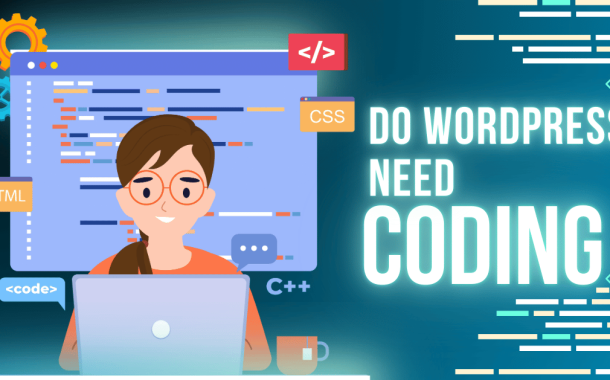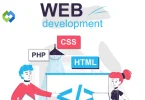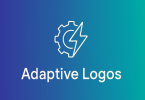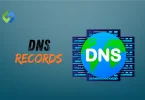Knowing whether coding is needed is important. For most basic websites, no coding is required. However, if you want to make advanced custom changes or create unique features, some coding knowledge may help.
Table of Contents
Table of Contents
Basic WordPress Usage Without Coding
WordPress is designed to be user-friendly, allowing even those without technical expertise to create and manage websites effectively.
1. Using Themes and Plugins
- Themes: WordPress offers thousands of free and premium themes that allow users to completely change the appearance and structure of their site with just a few clicks. These themes come pre-built and are customizable without needing any coding skills.
- Plugins: Plugins are extensions that add functionality to your WordPress site. Whether you want to add a contact form, SEO optimization tools, or social media integration, plugins can be installed and activated with minimal effort.
2. Customizing Through the WordPress Dashboard
The WordPress dashboard allows you to modify your site’s content and design without needing to code. From creating new pages to uploading media (images, videos, etc.), you can manage all aspects of your site in an intuitive interface. You can also change colors, fonts, and layouts by using the theme’s built-in customization options. Many themes offer a “Customizer” where you can preview changes in real time before publishing them.
3. Drag-and-Drop Builders
Tools like Elementor, WPBakery, and Divi are drag-and-drop page builders that allow users to design beautiful and responsive web pages visually. You simply drag elements (like text boxes, images, buttons) to where you want them on the page. These builders eliminate the need for HTML, CSS, or PHP knowledge, making it easy for non-technical users to create unique web designs.
4. Managing Widgets and Menus
WordPress comes with pre-built widgets and menu management features that allow you to organize and display content without coding. You can easily add sidebars, footers, or other widget areas and configure navigation menus to suit your site structure using a simple drag-and-drop interface.
When Coding Is Not Required
One of the biggest advantages of WordPress is that it empowers users to build and manage websites without needing to write code.
Pre-built Themes and Templates
- Themes: WordPress offers a variety of free and premium themes designed to fit different industries and website types. These themes are pre-coded and optimized for various purposes (blogs, e-commerce, portfolios, etc.), allowing users to pick one that matches their vision. Once installed, users can customize aspects like colors, fonts, and layouts without touching code.
- Page Templates: Many themes come with pre-built page templates for homepages, contact pages, or blog layouts. Users simply select a template and fill in the content.
Installing and Managing Plugins
Plugins are powerful tools that allow you to extend the functionality of your site. Whether it’s adding a contact form, optimizing for SEO, integrating social media, or building an online store, there’s a plugin for nearly everything. Installing and configuring plugins is straightforward. You can search for a plugin in the WordPress repository, click “Install,” and activate it without any knowledge of code.
Using Drag-and-Drop Page Builders
Drag-and-drop builders like Elementor, WPBakery, and Divi allow users to design custom pages without coding. These tools come with visual interfaces where you can add text boxes, images, videos, buttons, and more simply by dragging elements onto the page. With intuitive layouts and real-time previews, you can easily build complex page designs without HTML or CSS.
Managing Widgets
WordPress comes with built-in widgets (like search bars, recent posts, social media links) that can be easily added to widget-ready areas like sidebars and footers. You don’t need coding skills to add, rearrange, or remove widgets. You can also customize their appearance and functionality through widget settings, which are simple to navigate and adjust.
Creating and Managing Menus
The WordPress menu editor allows you to create and manage navigation menus using a drag-and-drop interface. You can add pages, categories, custom links, and more to your menu structure. No coding is required to create complex multi-level menus or adjust the order of links.
Publishing and Formatting Content
Using the Gutenberg Block Editor, you can create and format posts or pages with different types of blocks (text, images, videos, etc.) without writing code. The block system provides flexibility in designing your content layout while maintaining ease of use. The editor also includes options for embedding multimedia, quotes, galleries, and social media content through an intuitive interface.
When Coding Might Be Helpful
While WordPress is designed to be user-friendly, there are situations where coding skills can enhance your website’s functionality and design.
- Advanced Customizations: If you want to change the appearance or behavior of your theme beyond standard settings, coding can help you achieve that. Using custom CSS or HTML allows for unique styling that makes your site stand out. For instance, you can adjust margins, font sizes, and colors in a way that isn’t possible through the standard WordPress customizer.
- Plugin Development: Creating custom plugins tailored to your specific needs can be complex, but coding knowledge is essential for this. When existing plugins don’t meet your requirements, you can write your own to add unique functionalities to your site. This could include anything from custom forms to advanced data processing, enhancing user experience significantly.
- Theme Modifications: Sometimes, a theme doesn’t perfectly fit your vision or branding. Knowing PHP, the language WordPress is built on, allows you to modify themes directly. This means you can change how certain elements are displayed or even add new features that align with your goals. For example, you could add custom post types or adjust the layout to better suit your content.
- Troubleshooting: If you encounter issues on your website, understanding code can help you diagnose and fix problems quickly. Many problems can be resolved by checking error logs or adjusting settings in the code. This skill can save time and reduce dependency on external support, allowing you to maintain your site more efficiently.
- SEO Optimization: For better search engine performance, coding skills can help you implement advanced SEO practices that plugins might not cover. This includes optimizing site speed, customizing metadata, and ensuring proper HTML structure. By writing clean code and optimizing elements like headings and alt text for images, you can significantly improve your site’s visibility in search results.
How to Learn WordPress Coding
Learning WordPress coding can enhance your ability to customize and optimize your website. Start by familiarizing yourself with the basics of HTML and CSS. These are the foundational languages of web design. Many online resources, such as W3Schools or Codecademy, offer free tutorials that cover the essential concepts of structuring and styling web pages. Understanding these basics will provide a strong foundation for further learning.
Next, focus on learning PHP, the primary language behind WordPress. Since WordPress is built on PHP, having a grasp of its syntax and functions is crucial for making advanced modifications. Use resources like PHP.net and online courses on platforms like Udemy or Coursera to guide your learning. Alongside this, explore the WordPress Codex, which serves as the official documentation for developers. It offers comprehensive guides on theme and plugin development.
Once you have a basic understanding, set up a local WordPress environment using tools like XAMPP or Local by Flywheel. This will allow you to experiment with coding without affecting a live site. Start creating your own themes or plugins to apply what you’ve learned. Engaging with WordPress communities, such as forums and social media groups, can also provide support and insights from experienced developers.
Conclusion
Whether or not you need coding for WordPress depends on your website goals. For basic websites, you can use themes and plugins without any coding knowledge. This makes WordPress accessible for many users. However, if you want to customize your site more deeply, some coding skills can be helpful. Understanding HTML, CSS, and PHP allows for greater flexibility and control.
Learning to code can enhance your WordPress experience. It can help you create unique features, fix problems, and optimize your site. While you can manage a WordPress site without coding, knowing how to code opens up many possibilities. If you’re willing to learn, you’ll find it easier to make your website stand out and function the way you want.














